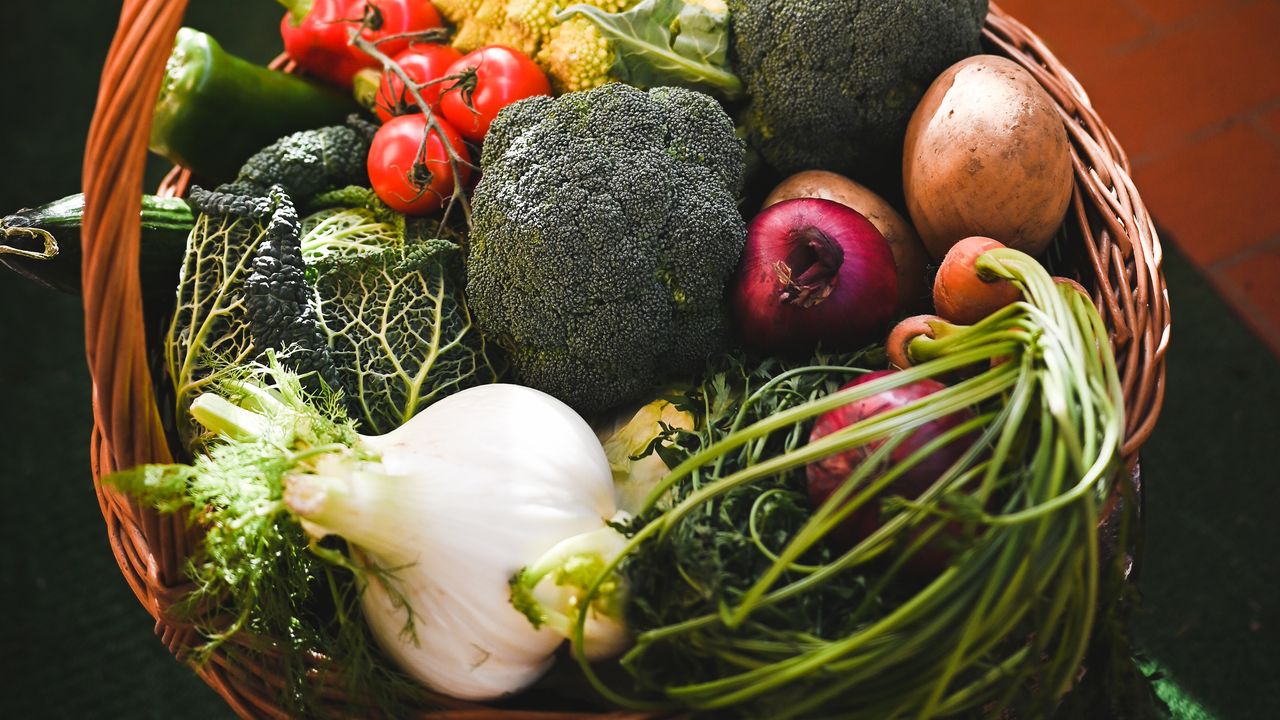When thinking about a well-balanced diet and what to include in your daily meals, experts say that vitamin K foods should be high on your list. As Samantha Dieras, RN, DCN, director of ambulatory nutrition services at Mount Sinai Hospital, explains, vitamin K is a fat-soluble vitamin that works to strengthen bones, help with blood clots, and support other functions to keep our bodies healthy.
If you’re not too familiar with the nutrient, the good news is that it’s pretty easy to find. There are two types of vitamin K: vitamin K1 and vitamin K2. Your main source of the nutrient will be vitamin K1, which can be found in green leafy vegetables. Vitamin K2 is found in animal-based and fermented foods. To break it down even further, the experts walk us through one of the most essential nutrients we need to stay healthy.
What does vitamin K do for our bodies? What are the benefits?
Lauren Manakerregistered dietitian nutritionist, says that vitamin K plays a crucial role in supporting your bone health and blood clotting. “(It) ensures that calcium goes to the right places, like your bones and teeth, instead of building up in your arteries or soft tissues,” she explains. “This dual action supports both bone and cardiovascular health.”
She goes on to say that vitamin K is the reason that small cuts don’t bleed excessively. And when it comes to our bones, the nutrient supports bone mineralization and helps prevent the risk of fractures. It may also help prevent calcium buildup in your arteries to keep them healthy.
Are there any downsides to vitamin K?
Both Manaker and Dieras say that vitamin K is generally safe for most people, and there are no known downsides. Dieras notes that the nutrient might interact negatively with certain medications, like antibiotics or blood thinners, so she recommends speaking with your doctor before consuming vitamin K in supplement form to make sure it doesn’t interfere with medicine you need.
What foods are rich in vitamin K?
Vitamin K foods are easy to find. The best ones to incorporate into your diet include:
Kale
Kale is rich in vitamin K. Manaker says that one cup of kale alone contains 1,062 micrograms (mcg) of the nutrient. So your favorite kale salad is more than enough to get your daily fix.
Spinach
Another popular leafy green that is rich in vitamin K is spinach, Manaker says: One cup contains 888 mcg of the nutrient.
Collard Greens
Manaker lists collard greens as a vitamin K powerhouse. She says one cup contains 1,059 mcg of the nutrient.
Brussels Sprouts
If you love brussels sprouts, you’re in luck. According to the US Department of Agriculture (USDA), one cup of cooked or raw brussels sprouts contains 155.8 mcg of vitamin K.
Broccoli
Broccoli comes with loads of benefits, such as being a good source of fiber and protein. As for its vitamin K content, Manaker says one cup can contain 220 mcg of the nutrient.
Edamame
Edamame makes for a great snack—it has more protein than eggs!—as well as being a great source of vitamin K. According to the USDA, one cup of edamame contains 37.1 mcg of the nutrient.
Carrot Juice
If you’re looking for a vitamin K option that you can drink, carrot juice is the way to go. According to the USDA, half a cup of carrot juice contains 12.1 mcg of the nutrient.
Soy Beans
Manaker says that soybeans are the highest source of vitamin K2. For about 3.5 ounces of the food, you can find over 1,000 mcg of the nutrient.
Prunes
A favorite of Manaker’s, prunes make for a versatile food that can work in so many recipes or even just as a healthy snack. She says that one cup contains 60 mcg of vitamin K.
Kiwi
If you’re looking for something that’s a bit sweeter, try kiwis, Manaker suggests. One cup of sliced kiwi contains about 73 mcg of vitamin K.
Avocado
Manaker also points to avocados as being a good source of vitamin K. Studies show that one serving (which is the equivalent of 1/5 of the fruit) contains 14 mcg of the nutrient.
Blueberries
Another popular fruit you can turn to for your vitamin K fix, Manaker says, is blueberries. One cup of blueberries contains about 47 mcg of the nutrient.
Grapes
Grapes, which have antioxidant and antiaging skin benefits, are also considered a good source of vitamin K. Manaker says that one cup of grapes contains about 22 mcg of the nutrient.
Chicken Breast
With chicken breast, you get your fix of protein and vitamin K. Manaker says that 3 ounces of the meat contains 13 mcg of vitamin K2.
Ground Beef
Another great protein source, if you love meat options, ground beef also contains vitamin K. The National Institute of Health (NIH) lists 3 ounces of ground beef as having 6 mcg of the nutrient.
Cheese
Many types of cheese are a good source of vitamin K. The NIH says that one serving, or half an ounce, of cheddar cheese contains 4 mcg of the nutrient, while 1.5 ounces of mozzarella contains about 2 mcg.
Soybean Oil
If you’re looking for oils to cook and mix your food with that also contain vitamin K, soybean oil is your new go-to. Manaker says that one tablespoon of the oil contains 25 mcg of the nutrient.
Olive Oil
Packed with nutrients and health benefits, olive oil is one of the best cooking oils out there and is a good source of vitamin K. Manaker says one tablespoon of olive oil contains 8 mcg of the nutrient.
Hard-Boiled Eggs
The benefits of eggs are many, and their vitamin K content is just another thing to add to that extensive list. According to the USDA, one large egg contains 0.15 mcg of the nutrient.
How much vitamin K does one person need to be considered healthy?
According to the NIH, the recommended daily intake of vitamin K is 120 mg a day for men and 90 mcg a day for women. Because the nutrient can be found in various different vegetables, fruits, meats, and other foods, Manaker says that you can easily meet this through a balanced diet.
How does one enhance their absorption of vitamin K?
Both experts agree that the best way to consume vitamin K is through whole foods in a well-balanced diet. Manaker recommends a versatile food like prunes that is packed with other nutrients and can be eaten or mixed into sauces. “They have a unique combination of not only vitamin K, but also boron, potassium, and antioxidants,” she says. “(They) can be added to many recipes to enhance flavor and texture thanks to their natural sweetness.”
Dieras says you can also take a vitamin K supplement. It’s oftentimes combined with vitamin D, which she says is beneficial for bone health.
How can you tell if you are vitamin K-deficient?
Both Manaker and Dieras say that a vitamin K deficiency is rare, but it can happen. In that rare occurrence, Dieras says it is usually caused by medications that might interfere with the nutrient or those who have malabsorption disorders and may struggle to absorb the vitamin K they’re consuming.





